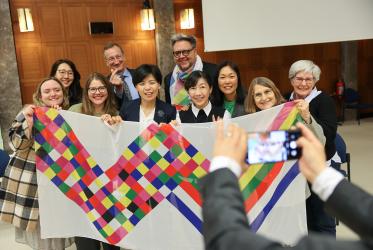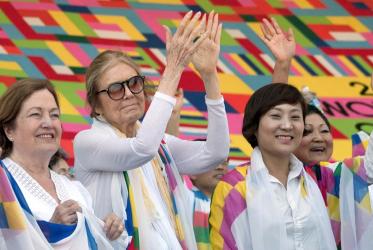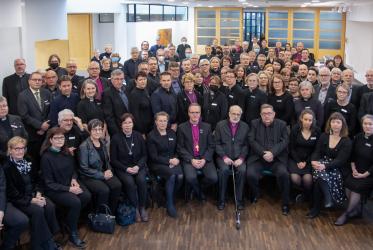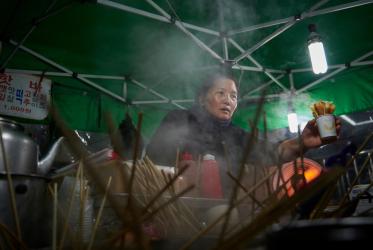Displaying 1 - 17 of 17
Hanbeet Rhee: “Young people can be bridges”
17 October 2019
Christians in Seoul celebrate Liberation Day
15 August 2019
Thursdays in Black: sharing support, transforming lives
21 February 2019
Hope born in the womb of God
05 November 2013
Thursdays in Black: zero tolerance for violence against women
11 October 2013









